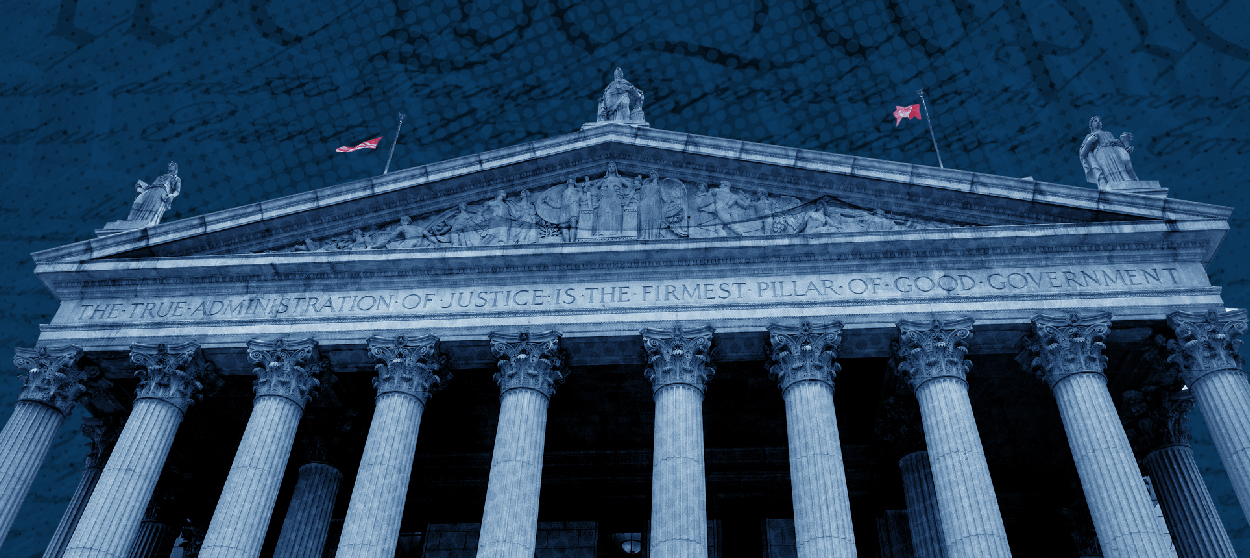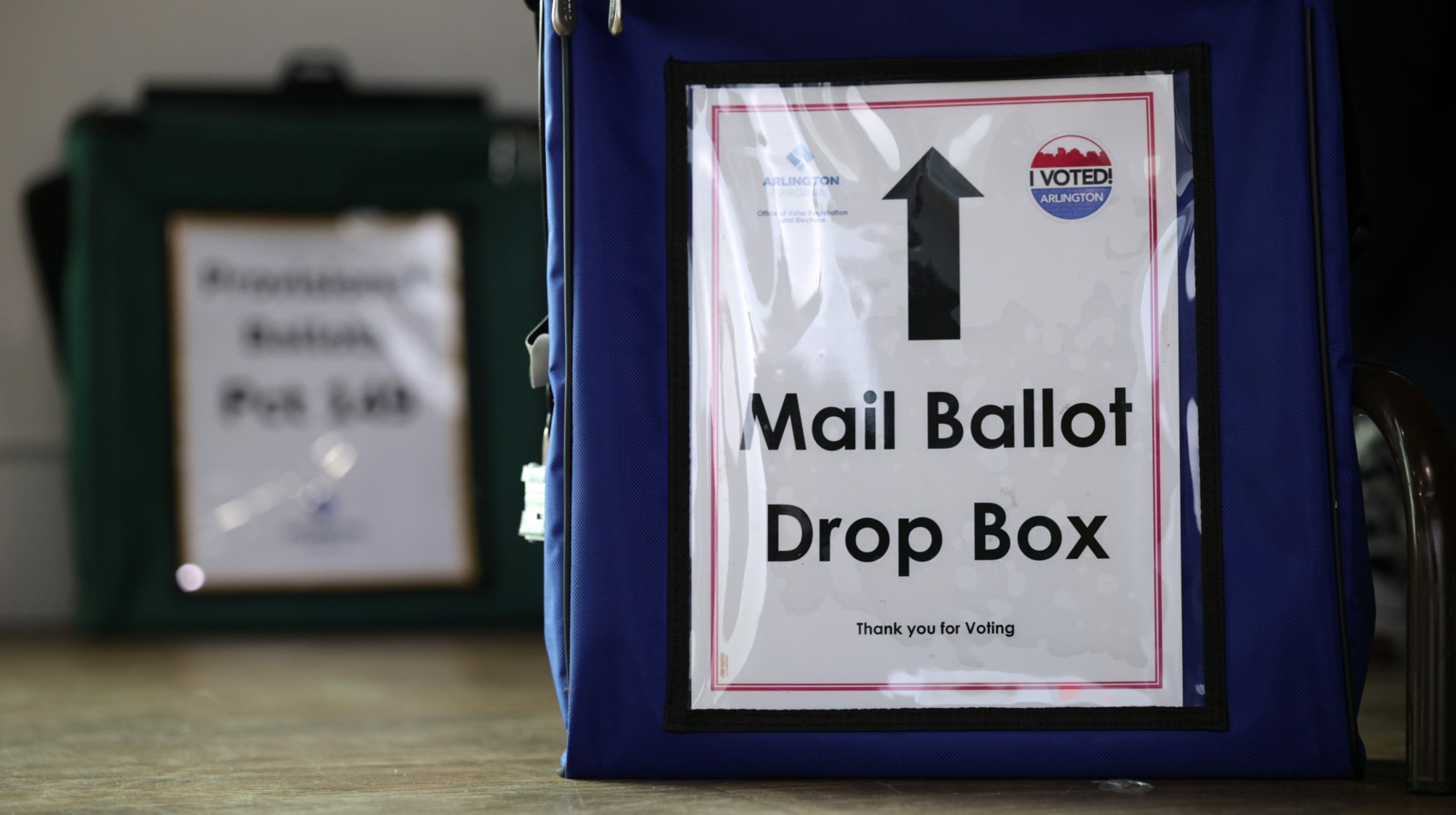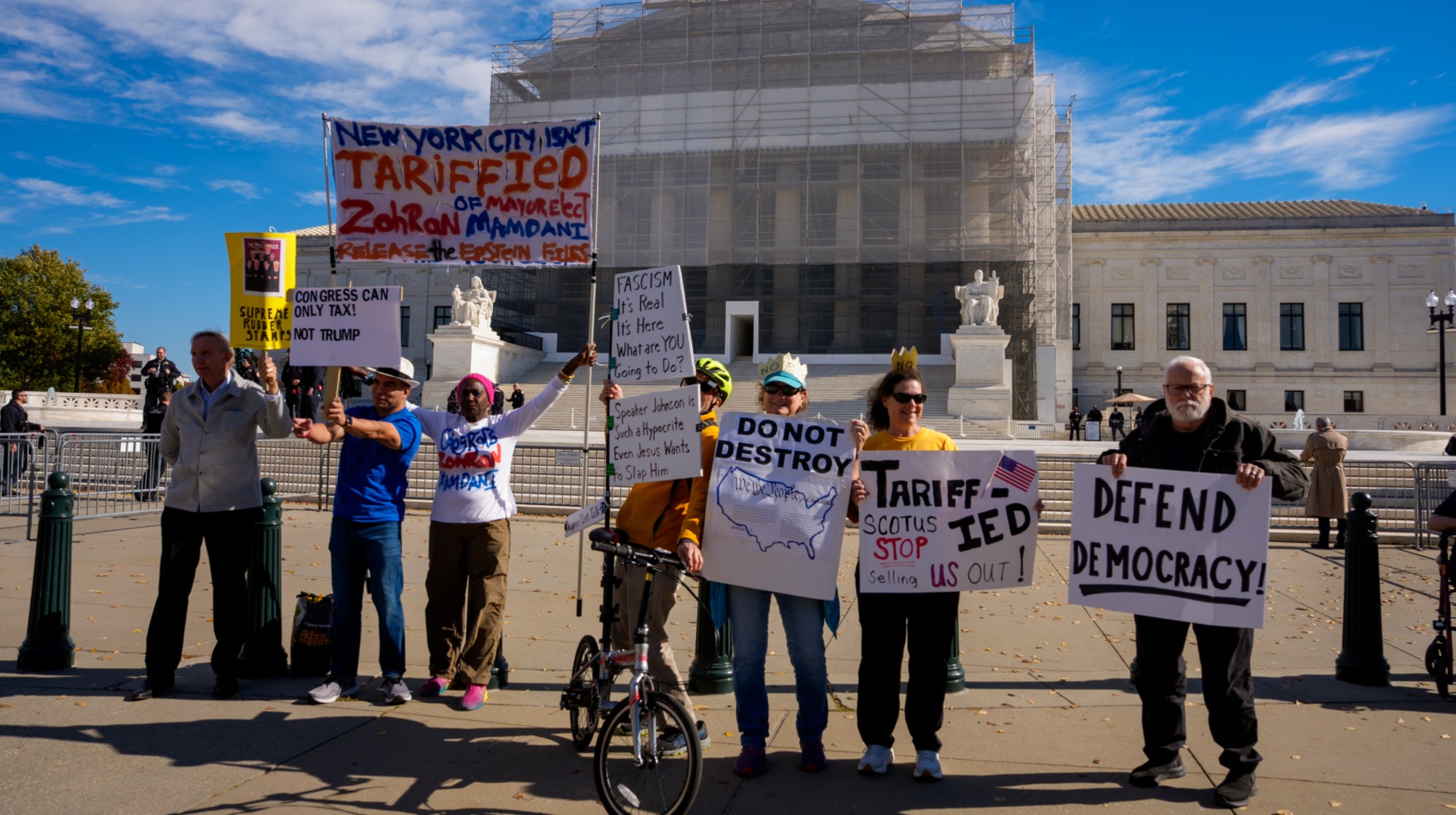The Supreme Court is courting disaster
Stephen Breyer warns about the perils of overturning the laws of the land


A free daily email with the biggest news stories of the day – and the best features from TheWeek.com
You are now subscribed
Your newsletter sign-up was successful
Justice Stephen Breyer's dissent in the recent case, Franchise Tax Board of California v. Hyatt, is being widely interpreted as a warning that Roe v. Wade is likely to be overturned. "The majority has surrendered to the temptation to overrule Hall even though it is a well-reasoned decision that has caused no serious practical problems in the four decades since we decided it," Breyer said. "Today's decision can only cause one to wonder which cases the Court will overrule next."
Breyer pointed to the implications for Roe by citing specifically the language from Planned Parenthood v. Casey, the decision that upheld Roe on the basis that it was settled law, in the closing peroration of his dissent. But the purpose of Breyer's allusion is not merely to predict the Court's likely actions, but to warn of the damage they will do to the Court's own standing. If the Court proceeds to wantonly overturn settled precedent, it will encourage continuous re-litigation of apparently settled questions, and ultimately lead the people to conclude that Justice John Marshall was wrong when he famously proclaimed in 1803 that "It is emphatically the province and duty of the Judicial Department to say what the law is."
Is that a problem? Actually, it is — but fear of the prospect of overturning Roe is precisely the wrong vantage point from which to understand why.
The Week
Escape your echo chamber. Get the facts behind the news, plus analysis from multiple perspectives.

Sign up for The Week's Free Newsletters
From our morning news briefing to a weekly Good News Newsletter, get the best of The Week delivered directly to your inbox.
From our morning news briefing to a weekly Good News Newsletter, get the best of The Week delivered directly to your inbox.
The popular story of the Court's primary function, as a guarantor of fundamental rights, is incorrect. What guarantees fundamental rights is not a handful of individuals with a peculiar ability to discern where those rights lie, nor the fact that at least some of those rights are written down on paper, but popular support. The Court's function is to ensure that the rights that have that support are protected in a consistent and predictable manner, providing citizens the ability to understand what the law is and to accept that it is so, even if they might have disagreed with the outcome in an individual case. It's the role of doctrine and judicial philosophy to thread the Court's decisions over time into that comprehensible whole, and thereby mask the inevitably arbitrary nature of each individual decision. In that sense, the Court performs an instructive function, teaching the people what it is to interpret the Constitution. To the extent that the public rejects that instruction, the Court is failing.
That doesn't mean the Court can never innovate, nor that it can never change its mind, even about fundamental rights. The Court changed its mind about Lochner v. New York, which blocked a vast array of Progressive-era social legislation as a violation of fundamental economic rights. It changed its mind about Plessy v. Ferguson, which had permitted racial segregation under the now-notorious doctrine of "separate but equal." Only a few years ago, Breyer joined a decision, Obergefell v. Hodges, that found a constitutional right for same-sex couples to marry, overturning settled law in all but a handful of states.
What made those innovations possible was the weight of popular opinion. In the Lochner era, the Court-mandated limits on the regulatory power of the state were clear, and in that sense perfectly workable. Lochner had to be overturned because those limits just weren't working; they prevented the people, through their representatives, from mitigating a variety of severe societal harms, a situation which ultimately became politically intolerable. Analogously, after the Civil War, Reconstruction required a concerted effort on the part of the white majority in the North to protect the rights of newly freed slaves in the South. Plessy was originally decided at a time when the popular national majority in favor of Reconstruction had evaporated, as a white majority sought reconciliation between North and South at the price of black subjugation. That popular national majority shifted in the wake of World War II, and so did the Court's view of its prior decisions.
The Court may lead popular opinion — as it did in ending segregation and in legalizing same-sex marriage — or it may lag it, as it did when it defended a supposed inviolable right to contract. But it cannot settle a fundamental question that the public doesn't want to see settled.
A free daily email with the biggest news stories of the day – and the best features from TheWeek.com
That's the problem with Casey. The standards articulated for when a precedent may be overturned are perfectly sensible. But the underlying question in that case — the right to an abortion, and whether and how it might be restricted — was not a matter of relative neutrality for the population at large, but a subject of fundamental, abiding, and increasingly passionate disagreement. For that very reason, it was impossible for the Court to settle it, as has been proved by the trajectory of American politics since.
But that doesn't mean that the conservative dissenters in Casey were right. At the time, Justice Antonin Scalia argued that the problem with Roe was that the Court went beyond the bounds of the Constitution's own language and history in finding and reaffirming the right to terminate a pregnancy. But this only catered to a popular delusion on the right that the framers had some clairvoyant power to design a constitution for eternity, comparable to the liberal delusion that appointment to the Court bestows some unique power to discern rights. The language of the Constitution is generally flexible, and intentionally so, but when it isn't, the Court has often willfully misread it to be so when necessary.
The Second Amendment, for example, is exceptionally emphatic, but for most of American history it was understood to impose essentially no practical restrictions on the state to regulate firearms. It was only with the 2008 Heller decision, which overturned a handgun ban in Washington, D.C., that the Court's conservatives decided to innovate limits on the legislative power in this area. If the Court decides to make itself a primary obstacle to popular gun control measures, it will run into the same buzz saw that it has since Casey. Similarly, in the New Deal era, the Court backed away from both the plain meaning of the phrase "interstate commerce" and an extensive body of precedent to give Congress essentially unlimited power to regulate the national economy. In our era, a vocal body of conservative judicial thinkers hope to reverse those decisions, upending nearly a century of settled law for an ideological program with essentially no popular support. It's the juridical equivalent of Jacobitism, but with less romance and far more real power.
It is the prospect of right-wing innovations in this area that raises the greatest specter of delegitimization and undermining popular confidence in the law as such. The risk in Hyatt is not just that the Court is encouraging legislatures to see what laws the Court will now accept as passing constitutional muster, but that the Court is encouraging litigants to overturn settled law across the spectrum, to take advantage of a right-leaning judiciary that is frequently out of step with the views of popular majorities and their representatives. If the Court declines to respect long and clear precedents regarding the ability of legislatures to tax and regulate, as it has been increasingly inclined to do, it will be ruling out of bounds some of the core questions of politics. And when politics consistently fails, so does respect for the law.
But politics can't be said to have failed until it has been tried. If Breyer's warning proves prescient and Roe is overturned, America may well experience a political earthquake of historic proportions, as millions of women and men mobilize to protect a right suddenly laid bare to possible abrogation. But that has always been the only way to protect such rights. And if some future Court restores them to the Constitution, it will be because a popular majority was roused to demand it do so.
Noah Millman is a screenwriter and filmmaker, a political columnist and a critic. From 2012 through 2017 he was a senior editor and featured blogger at The American Conservative. His work has also appeared in The New York Times Book Review, Politico, USA Today, The New Republic, The Weekly Standard, Foreign Policy, Modern Age, First Things, and the Jewish Review of Books, among other publications. Noah lives in Brooklyn with his wife and son.
-
 The Olympic timekeepers keeping the Games on track
The Olympic timekeepers keeping the Games on trackUnder the Radar Swiss watchmaking giant Omega has been at the finish line of every Olympic Games for nearly 100 years
-
 Will increasing tensions with Iran boil over into war?
Will increasing tensions with Iran boil over into war?Today’s Big Question President Donald Trump has recently been threatening the country
-
 Corruption: The spy sheikh and the president
Corruption: The spy sheikh and the presidentFeature Trump is at the center of another scandal
-
 Supreme Court upholds California gerrymander
Supreme Court upholds California gerrymanderSpeed Read The emergency docket order had no dissents from the court
-
 The billionaires’ wealth tax: a catastrophe for California?
The billionaires’ wealth tax: a catastrophe for California?Talking Point Peter Thiel and Larry Page preparing to change state residency
-
 How robust is the rule of law in the US?
How robust is the rule of law in the US?TODAY’S BIG QUESTION John Roberts says the Constitution is ‘unshaken,’ but tensions loom at the Supreme Court
-
 Bari Weiss’ ‘60 Minutes’ scandal is about more than one report
Bari Weiss’ ‘60 Minutes’ scandal is about more than one reportIN THE SPOTLIGHT By blocking an approved segment on a controversial prison holding US deportees in El Salvador, the editor-in-chief of CBS News has become the main story
-
 The ‘Kavanaugh stop’
The ‘Kavanaugh stop’Feature Activists say a Supreme Court ruling has given federal agents a green light to racially profile Latinos
-
 Supreme Court to decide on mail-in ballot limits
Supreme Court to decide on mail-in ballot limitsSpeed Read The court will determine whether states can count mail-in ballots received after Election Day
-
 Trump tariffs face stiff scrutiny at Supreme Court
Trump tariffs face stiff scrutiny at Supreme CourtSpeed Read Even some of the Court’s conservative justices appeared skeptical
-
 Has Zohran Mamdani shown the Democrats how to win again?
Has Zohran Mamdani shown the Democrats how to win again?Today’s Big Question New York City mayoral election touted as victory for left-wing populists but moderate centrist wins elsewhere present more complex path for Democratic Party
